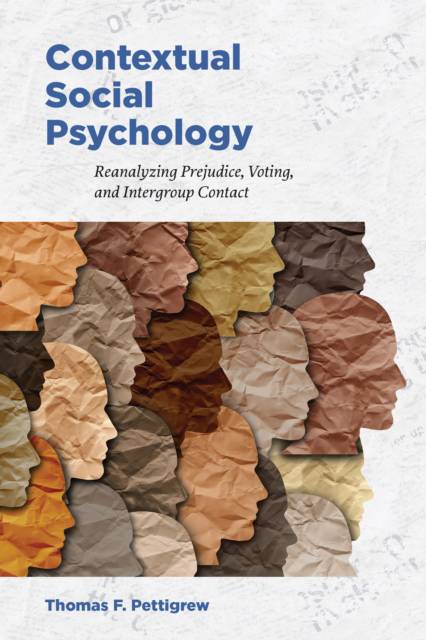
- Afhalen na 1 uur in een winkel met voorraad
- Gratis thuislevering in België vanaf € 30
- Ruim aanbod met 7 miljoen producten
- Afhalen na 1 uur in een winkel met voorraad
- Gratis thuislevering in België vanaf € 30
- Ruim aanbod met 7 miljoen producten
Zoeken
Contextual Social Psychology
Reanalyzing Prejudice, Voting, and Intergroup Contact
Thomas F Pettigrew
Paperback | Engels
€ 74,45
+ 148 punten
Omschrijving
Using vivid examples of both historical and current events, acclaimed scholar Thomas Pettigrew's compelling book advocates for a robust contextual social psychology, maintaining that far more attention should be paid to the social context of various phenomena relevant in the world today. The volume traces the author's 65-year career, and offers a contextual, three-level approach for studying and theorizing about a variety of social psychological phenomena, combining cultural, situational, and personality levels of analysis. Each chapter illustrates concepts important to the field and provides insight into its advantages, applying these analyses to critical topics such as prejudice, far-right voting patterns, relative deprivation, and intergroup contact. The book describes milestones in establishing a theoretically and methodologically sound contextual approach, including major statistical advances that have made this research easier to conduct, more rigorous, and more commonplace. As the book demonstrates, in an educational capacity, contextual social psychology opens the possibility for joint undergraduate and graduate courses with other social science classes, such as sociology and political science. Pettigrew paints a broad picture of how social science truly operates at multiple levels.
Specificaties
Betrokkenen
- Auteur(s):
- Uitgeverij:
Inhoud
- Aantal bladzijden:
- 271
- Taal:
- Engels
Eigenschappen
- Productcode (EAN):
- 9781433832949
- Verschijningsdatum:
- 16/02/2021
- Uitvoering:
- Paperback
- Formaat:
- Trade paperback (VS)
- Afmetingen:
- 152 mm x 226 mm
- Gewicht:
- 399 g

Alleen bij Standaard Boekhandel
+ 148 punten op je klantenkaart van Standaard Boekhandel
Beoordelingen
We publiceren alleen reviews die voldoen aan de voorwaarden voor reviews. Bekijk onze voorwaarden voor reviews.











